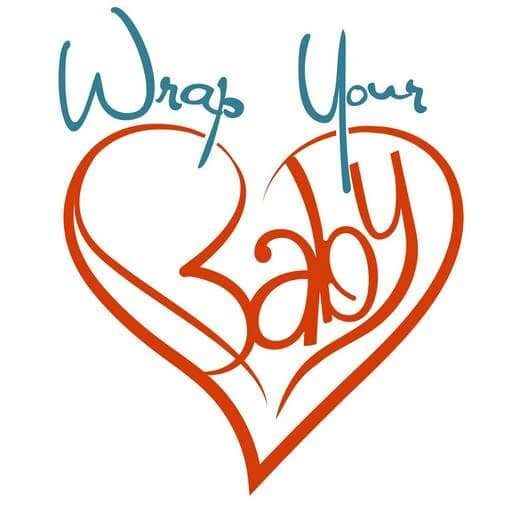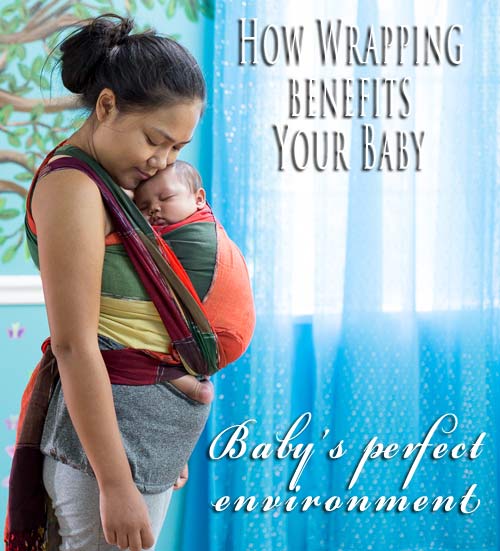Babywearing Benefits to Babies
Motor Development:
Newborns are accustomed to an environment where they are snug and warm, they feed on demand, their bodily functions are regulated and they are in constant contact with the mother’s bodily functions such as heartbeat and breathing.
Wrapping your baby replicates this environment and is ideal during the first 3 months of life because holding your baby upright against your chest:
- fills most of your baby’s physical needs other than eating and elimination.
- improves successful breastfeeding rates for those who want to nurse.
- provides a sense of security so baby can put energy into growth and development.
- encourages baby’s organs to function optimally and effortlessly.
- strengthens baby’s muscles and improves trunk and neck control.
- helps with reflux and colic in many babies who do well in an upright position and with even, gentle pressure on the belly.
Soft fabric and a snug carry in one of these wraps gives your baby a familiar environment to grow.
Emotional Development:
If your baby is one who cries to be held, you can find countless items in any baby store invented to trick your baby into letting you put him down, but why do we need to trick babies? Why are babies unhappy when we aren’t holding them?
Human biological evolution is a slow process and has not caught up with the recent social evolution away from hands-on parenting. Human babies are born before they are physically competent compared to many other mammals. In this way, they’re more like marsupials who are born physiologically dependent and cling to an adult for months post-partum while they continue to develop towards independent capability.
Because your baby is born expecting that physical closeness, your baby feels relief when that expectation is met. New babies aren’t mobile so they can’t escape from danger; they can’t feed themselves; they can’t keep themselves clean; they can’t even burp without our help. So it is natural for babies to worry and fret when they are away from human touch. Babies that are worried are not thriving.
Some babies adjust to life outside the womb easily, and some have a harder time with the many drastic changes that disrupt their work to grow and develop. It is for this latter bunch that so much modern baby gear was invented. You know, the gear that rocks, bounces, vibrates, plays music, simulates heartbeats, or produces soothing white noise.
All good tries, but nothing eases the adjustment to life after birth like the original method of holding your baby close while you move naturally through your daily work! A woven wrap makes that easier.
Cognitive Development:
The benefits of optimum physiological development also lead to improved mental development. Babywearing contributes to a baby’s developing senses of balance, spatial orientation, and vision which result in enhanced cognitive processes.
While newborns who are worn spend most of their time sleeping and growing, you will soon observe for yourself that carried babies experience more quiet alert time (when they are awake and interested in their surroundings) than babies who are in baby containers.
Wrapping your baby also provides rich social experiences and varied environments for baby’s to learn from as you expose him or her to your world, at your level, and with the security of your presence and attention.
You will find that you interact with your baby more when wrapped onto your chest compared to pushed in a stroller facing away from you. While mom or dad’s eye contact, voice, and attention are crucial to your baby’s emotional and mental well-being, you will find that even strangers will talk to your baby more when he or she is up at eye level instead of down at knee height.
When people are not interacting directly with your baby, your baby will be learning from listening to your language and observing your social interactions, not just in superficial ways, but right down to your steady or racing heart rate, the pitch of your voice, and the tense or relaxed state of your muscles. Your baby is picking up invaluable social cues that may serve him or her well later in life.
It should come as no surprise that a baby who feels safe and loved will thrive physically, emotionally, and mentally. While you don’t need a wrap to provide that, a wrap like this will make it easier for you to do so.



